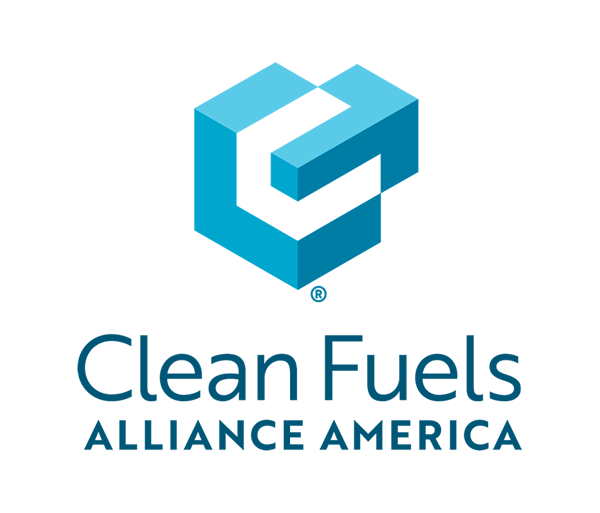
The EPA's June proposal to slash incentives for biofuel imports has ignited a fierce debate across America's energy landscape. With Environmental Protection Agency officials seeking to allocate only half as many tradable renewable fuel credits to imported biofuels and biofuel feedstocks as to domestic ones, the question becomes clear: can this policy shift strengthen domestic supply without derailing clean fuel momentum?
The mounting criticism puts the White House in the position of having to side with either farmers looking to prioritize domestic supply, or refiners seeking cheaper feedstock, both groups loyal to President Trump. This regulatory pivot could reshape America's renewable fuel landscape by year's end.
>> RELATED: US Oil Group Challenges Trump Plan to Cut Biofuel Import Credits

Understanding the Policy Shift
The shift, which could be finalized before the year's end, has significant implications for bio-based diesel, which relies on imports to meet federal mandates. Under the Renewable Fuel Standard (RFS), refiners must blend billions of gallons of biofuels into the fuel market or purchase credits known as RINs to demonstrate compliance.
This fundamental restructuring would create a two-tiered system, giving imported biofuels and foreign feedstocks significantly fewer RINs than domestic alternatives. The proposal represents one of the most significant changes to biofuel import policy in recent years.
Key Policy Details
- Current system: Equal RIN values for domestic and imported biofuels
- Proposed change: 50% RIN reduction for imports and foreign feedstocks
- Timeline: Final rule expected by end of 2025
- Primary impact: Bio-based diesel sector, which relies heavily on imports
Farm Belt Celebrates Domestic Focus
The Farm Belt, specifically soybean farmers, hailed the proposed shift as a victory, arguing the RFS was always intended to boost domestic production and that countries like China were flooding the market with cheap supply. This support reflects long-standing concerns about foreign competition undermining American agricultural interests.
For domestic producers, the policy shift signals a return to the original intent of the RFS program. American farmers have consistently argued that renewable fuel standards should prioritize homegrown feedstocks and support rural economic development through increased demand for agricultural products.
Strengthening Domestic Supply Chains
The policy promises to create more predictable demand for American-grown feedstocks, potentially driving additional investments in production capacity. Rural communities stand to benefit from increased economic activity as domestic biofuel production becomes more competitive relative to imports.
This shift aligns with broader trends toward supply chain regionalization and energy security priorities that have gained momentum across multiple industries in recent years.

>> In Other News: bioEnergy Development Announces Decentralized 1 GWh Power-Generation Microgrid for AI Computing and Crypto Hyperscalers
Industry Concerns About Feedstock Availability
The oil industry argues the U.S. lacks enough feedstock to meet the federal quotas without imports, tightening an already stretched domestic market and driving prices higher. These concerns reflect legitimate questions about short-term supply capacity and compliance costs for refiners.
"As proposed, it is unworkable and would have significant harmful effects on the overall RFS program and could place upward pressure on fuel costs."
American Petroleum Institute
The API also questioned the legality of the proposal in separate comments, signaling the deep-pocketed trade group could be prepared to go to court to challenge the administration. This suggests potential legal challenges that could delay implementation or modify the final rule.
Divided Industry Response
The proposal has revealed interesting fault lines within the biofuels industry itself. Refiners and farm groups were earlier this year unified on bio-based diesel, with both arguing that federal quotas needed to be higher. However, the shift on imports caught both industries by surprise.

"There is not consensus among our members on the proposal to reduce the RIN value for fuels produced domestically from foreign feedstock."
Clean Fuels Alliance America
Even within trade groups, sentiment around the imports proposal is divided. This division reflects the complexity of modern biofuel supply chains, where domestic producers often rely on a mix of domestic and foreign feedstocks to maintain competitive operations.
Broader EPA Renewable Fuel Changes
The import credit reduction is part of a larger package of RFS program modifications. EPA is also proposing several regulatory changes to the RFS program, including reducing the number of Renewable Identification Numbers (RINs) generated for imported renewable fuel and renewable fuel produced from foreign feedstocks and removing renewable electricity as a qualifying renewable fuel under the RFS program (eRINs).
EPA's Proposed Volume Requirements
| Fuel Type | 2026 (Billion RINs) | 2027 (Billion RINs) |
|---|---|---|
| Cellulosic biofuel | 1.30 | 1.36 |
| Biomass-based diesel | 7.12 | 7.50 |
| Advanced biofuel | 9.02 | 9.46 |
| Total renewable fuel | 24.02 | 24.46 |
Adaptation and Innovation Opportunities
While the proposal creates short-term challenges, it also presents opportunities for innovation and strategic repositioning. Companies that successfully adapt to policy changes often emerge stronger and more competitive in evolving markets.
The biofuels sector has demonstrated remarkable resilience through previous regulatory shifts, consistently finding ways to maintain growth while meeting new requirements. This adaptability suggests the industry can navigate the current policy changes while continuing to advance clean fuel objectives.
Market-Driven Solutions
The policy could accelerate partnerships between refiners and domestic producers, creating more integrated supply chains that benefit both sectors. These relationships might drive investment in advanced feedstock technologies and production efficiency improvements.
Regional biofuel production hubs could become more economically attractive, potentially creating distributed networks that enhance overall supply chain resilience and reduce transportation costs.
Path Forward for Clean Fuel Growth
The debate over import credits reflects broader questions about balancing domestic economic priorities with decarbonization goals. However, these objectives need not be mutually exclusive when approached strategically.
Domestic biofuel production expansion could strengthen both energy security and climate progress if coupled with continued innovation in feedstock development and production technologies. The policy provides clear market signals that could attract investment in exactly these areas.
As the EPA finalizes its approach to import credits, the industry's response will likely determine whether this policy shift becomes a catalyst for domestic growth or a constraint on clean fuel expansion. Historical precedent suggests American biofuel producers and their partners will find ways to turn regulatory challenges into competitive advantages while maintaining momentum toward a cleaner energy future.
Subscribe to the newsletter
Daily decarbonization data and news delivered to your inbox
Follow the money flow of climate, technology, and energy investments to uncover new opportunities and jobs.
Latest issues
-
Inside America’s Carbon Capture Reality Check
Inside This Issue ⚡ Duke Energy Florida Goes Live With First 100% Hydrogen System ✈️ Air bp Signs Agreement With Airbus on Flight Services and Fuel Supplies in Europe 🌊 Pairing Reefs and Mangroves...
-
Three Nebraska Plants Prove Ethanol CCS Actually Works
Inside this Issue 🌽 Three Nebraska Plants Prove Ethanol CCS Actually Works ☀️ SunHydrogen and CTF Solar Sign Agreement to Accelerate Hydrogen Panel Manufacturing 🧪 GenH2 Completes Major Milestone:...
-
DOE Doubles Down on $1/kg Clean Hydrogen Goal
Inside This Issue 🎯 Doe Doubles Down on $1/kg Clean Hydrogen Goal 🕳️ Quebec Introduces First Legal Framework for Underground CO2 Storage 🧪 Charbone Announces Its First Hydrogen Supply Hub in the O...
Company Announcements
-
JERA Announces Close of Haynesville Shale Gas Asset in Louisiana
TOKYO and HOUSTON, Feb. 12, 2026 /PRNewswire/ -- JERA Co. Inc., a global energy leader and Japan's largest power generation company, today announced that through its subsidiary JERA Americas Inc., ...
-
Buffalo Biodiesel Inc. (“BBD”), a leading recycler of waste vegetable used cooking oil (WVUCO) and producer of renewable feedstocks, announced that they have officially renewed a Part 364 Waste Tra...
-
Air bp Signs Agreement With Airbus on Flight Services and Fuel Supplies in Europe
Air bp has signed a multi-year contract with Airbus for the supply of conventional aviation fuel, sustainable aviation fuel (SAF), and related services in Germany and Spain. This agreement enables ...
-
BEND, Ore.--Element 1® Corp. (“e1”), an Oregon-based leader in methanol-to-hydrogen generation technology, today announced the signing of a Memorandum of Understanding (MOU) with Aurosi Precision C...